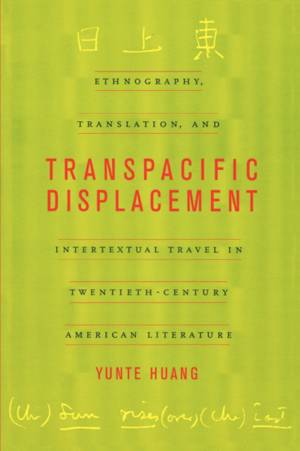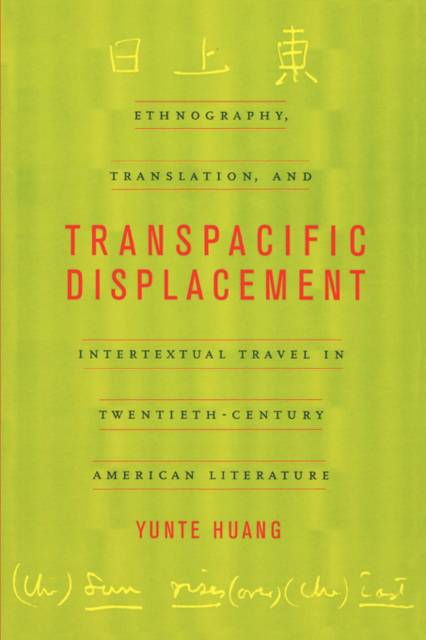
Bedankt voor het vertrouwen het afgelopen jaar! Om jou te bedanken bieden we GRATIS verzending (in België) aan op alles gedurende de hele maand januari.
- Afhalen na 1 uur in een winkel met voorraad
- In januari gratis thuislevering in België
- Ruim aanbod met 7 miljoen producten
Bedankt voor het vertrouwen het afgelopen jaar! Om jou te bedanken bieden we GRATIS verzending (in België) aan op alles gedurende de hele maand januari.
- Afhalen na 1 uur in een winkel met voorraad
- In januari gratis thuislevering in België
- Ruim aanbod met 7 miljoen producten
Zoeken
Transpacific Displacement
Ethnography, Translation, and Intertextual Travel in Twentieth-Century American Literature
Yunte Huang
Paperback | Engels
€ 54,45
+ 108 punten
Omschrijving
Yunte Huang takes a most original "ethnographic" approach to more and less well-known American texts as he traces what he calls the transpacific displacement of cultural meanings through twentieth-century America's imaging of Asia.
Informed by the politics of linguistic appropriation and disappropriation, Transpacific Displacement opens with a radically new reading of Imagism through the work of Ezra Pound and Amy Lowell. Huang relates Imagism to earlier linguistic ethnographies of Asia and to racist representations of Asians in American pop culture, such as the book and movie character Charlie Chan, then shows that Asian American writers subject both literary Orientalism and racial stereotyping to double ventriloquism and countermockery. Going on to offer a provocative critique of some textually and culturally homogenizing tendencies exemplified in Maxine Hong Kingston's work and its reception, Huang ends with a study of American translations of contemporary Chinese poetry, which he views as new ethnographies that maintain linguistic and cultural boundaries.
Informed by the politics of linguistic appropriation and disappropriation, Transpacific Displacement opens with a radically new reading of Imagism through the work of Ezra Pound and Amy Lowell. Huang relates Imagism to earlier linguistic ethnographies of Asia and to racist representations of Asians in American pop culture, such as the book and movie character Charlie Chan, then shows that Asian American writers subject both literary Orientalism and racial stereotyping to double ventriloquism and countermockery. Going on to offer a provocative critique of some textually and culturally homogenizing tendencies exemplified in Maxine Hong Kingston's work and its reception, Huang ends with a study of American translations of contemporary Chinese poetry, which he views as new ethnographies that maintain linguistic and cultural boundaries.
Specificaties
Betrokkenen
- Auteur(s):
- Uitgeverij:
Inhoud
- Aantal bladzijden:
- 224
- Taal:
- Engels
Eigenschappen
- Productcode (EAN):
- 9780520232235
- Verschijningsdatum:
- 6/02/2002
- Uitvoering:
- Paperback
- Formaat:
- Trade paperback (VS)
- Afmetingen:
- 154 mm x 231 mm
- Gewicht:
- 349 g

Alleen bij Standaard Boekhandel
+ 108 punten op je klantenkaart van Standaard Boekhandel
Beoordelingen
We publiceren alleen reviews die voldoen aan de voorwaarden voor reviews. Bekijk onze voorwaarden voor reviews.









